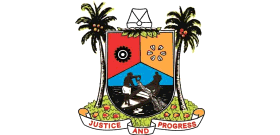 Lagos Gears Up to Host Africa’s Longest Urban Cycling Event, Showcasing Coastal Innovation
Lagos Gears Up to Host Africa’s Longest Urban Cycling Event, Showcasing Coastal Innovation
The city of Lagos is preparing to make history with the launch of the Lagos Gran Fondo EKO 170, a 170-kilometre cycling spectacle set for January 11, 2026. This ambitious event, which welcomes both elite and amateur cyclists from across Nigeria and the globe, marks a major leap in the city’s drive to position itself as a leader in sports tourism and a magnet for creative investment in sub-Saharan Africa.
Unveiling the event, Lekan Fatodu, Director General of the Lagos State Sports Commission, emphasized the far-reaching impact of EKO 170. “This is not just a race—it’s a statement of Lagos’s commitment to innovation, sustainability, and global excellence,” Fatodu declared. The event, he noted, is designed to spark a new era in community health, economic vibrancy, and international recognition for the megacity. “We are ready to deliver world-class experiences that inspire healthier lifestyles while showcasing Lagos’s unique energy,” he added.
This mass participation cycling challenge underscores the city’s readiness to host global-scale events, a stance echoed by Toke Benson-Awoyinka, Commissioner for Tourism, Arts and Culture. She described the EKO 170 as a living showcase of Lagos’s potential as Africa’s next great sports tourism destination. “The Cycling Challenge blends Lagos’s breathtaking coastal scenery, advanced infrastructure, and dynamic cultural scene into an unforgettable experience,” she explained. “It will attract visitors, empower local communities, and highlight what makes Lagos truly exceptional.”
Endorsed at the highest levels of government, the Lagos Gran Fondo EKO 170 is expected to draw more than 1,000 cyclists, including seasoned professionals and passionate enthusiasts, transforming the city’s streets into a vibrant sporting arena. The carefully mapped 170-kilometre route will start and conclude at the iconic Eko Atlantic City, weaving through Victoria Island, the landmark Lekki-Ikoyi Link Bridge, and stretching along the Lekki-Epe Expressway to Epe before looping back for a grand finish. This strategic course not only highlights the state’s cutting-edge infrastructure but also its natural beauty and cosmopolitan flair.
For African travel industry stakeholders, the EKO 170 offers a fresh blueprint for leveraging large-scale sporting events to ignite local economies and stimulate tourism flows. The anticipated influx of visitors—riders, their support teams, and fans—will provide a significant boost to hotels, restaurants, transport providers, and small businesses in Lagos and surrounding areas. As Fatodu noted, “This event is about opening doors for small enterprises, artisans, and creative talents to connect with a wider audience and realize new economic opportunities.”
From a branding perspective, Lagos is using EKO 170 to reinforce its global image as a city that blends tradition with modernity. By integrating the event with the state’s signature landmarks and vibrant neighborhoods, organizers aim to deliver an urban adventure that goes beyond sport. The race will celebrate the coastal vibrancy of Lagos, the pulse of its markets, and the warmth of its communities—elements that together set the city apart as a destination for both business and leisure.
Moreover, the Gran Fondo format—traditionally associated with European cycling culture—signals Lagos’s intention to claim its place on the international sports stage. This move is likely to spark new interest from global cycling bodies, sponsors, and adventure tourists, opening doors for future collaborations and expanded event calendars. With a growing appetite among African travelers for wellness and active lifestyle experiences, EKO 170 could inspire other cities on the continent to invest in similar initiatives that merge health, culture, and commerce.
As the countdown to the inaugural edition begins, Lagos’s tourism and hospitality sectors are already gearing up for increased demand. Hotels are crafting special packages for participants and spectators, while tour operators are curating side excursions that showcase the city’s art, music, and culinary scenes. The local government, meanwhile, is working to ensure seamless logistics, robust security, and a festive atmosphere that will leave a lasting impression on all who attend.
For those involved in Africa’s travel industry, the message is clear: large-scale, inclusive sporting events are powerful engines for destination marketing, economic diversification, and community development. The Lagos Gran Fondo EKO 170 stands as a testament to what can be achieved when cities invest in world-class infrastructure and nurture a culture of innovation. As cycling enthusiasts and visitors descend on Lagos in January 2026, the city will not only set new records for endurance but also for imagination, resilience, and partnership—qualities that will shape the future of tourism across the continent.
In the years ahead, the success of EKO 170 is expected to ripple beyond Lagos, encouraging other African destinations to harness the power of sports tourism in their quest for sustainable growth. For now, all eyes are on Lagos as it prepares to roll out the red carpet for Africa’s longest urban cycling challenge—a bold step that will accelerate new business, inspire healthier living, and spotlight the enduring spirit of Nigeria’s commercial capital.
